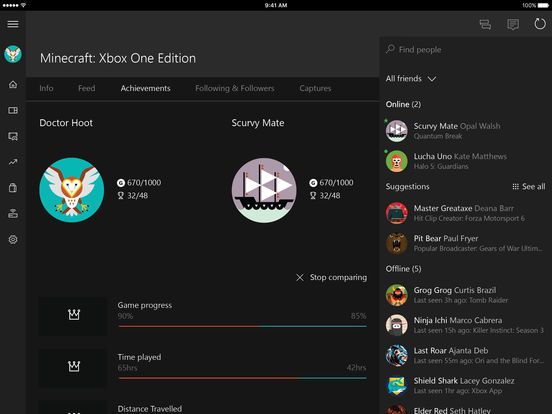Halo on PlayStation? The Console Wars Are Over, But New Battle Begins

The ground beneath the video game industry is shifting. For decades, the landscape was defined by a simple, fierce conflict: the console wars. Lines were drawn, exclusives were brandished like weapons, and gamers pledged allegiance to one plastic box over another. But a recent, earth-shaking rumor suggests that the most iconic general of the Xbox army, Master Chief himself, may soon appear on enemy territory. The question on everyone's mind is no longer who is winning the war, but if the war is even over.
Whispers of the flagship Halo franchise launching on PlayStation have reached a fever pitch, fueled by Microsoft's seismic shift in strategy. While the arrival of Master Chief on a Sony console remains unconfirmed, the move is no longer unthinkable. It’s the potential culmination of a new philosophy emanating from Xbox, one that prioritizes players and platforms over hardware sales. This isn't a surrender; it's the opening salvo in a completely different kind of war.
The First Wave: Xbox Exclusives Have Already Breached the Wall
Before we can speculate on the future, we must look at the facts on the ground. The once-impenetrable wall between console ecosystems has already been breached. Earlier this year, Microsoft confirmed it was bringing four of its exclusive titles to rival platforms, including the PlayStation 5.
This initial wave of games included a diverse lineup designed to test the waters:
- Sea of Thieves: The popular shared-world pirate adventure from Rare.
- Hi-Fi Rush: The critically acclaimed rhythm-action game that took the world by storm.
- Grounded: Obsidian Entertainment's unique survival game where players are shrunk to the size of an ant.
- Pentiment: A narrative-driven historical mystery, also from the RPG masters at Obsidian.
The release of these titles was a landmark moment. For the first time, major first-party games developed under the Xbox Game Studios banner were made available for purchase on a direct competitor's console. It was a clear signal that the old rules no longer apply. Xbox is now a publisher as much as a platform holder, and its ambitions extend far beyond its own hardware.
The Halo Hypothesis: Why Master Chief on PS5 Changes Everything
The four games already released were significant, but Halo is on another level entirely. For over two decades, Halo: Combat Evolved and its successors have been the system-sellers, the crown jewels, the very definition of the Xbox brand. Master Chief is to Xbox what Mario is to Nintendo.
Putting Halo on PlayStation would be more than just a business decision; it would be a profound cultural statement. It would signify that Microsoft believes the value of its software and its universe transcends the hardware it was built to sell. The goal is no longer to get you to buy an Xbox console to play Halo, but to get you to play Halo no matter where you are.
This potential move is the ultimate test of Xbox's new strategy. If the company is willing to share its most valuable icon, it signals a complete and total commitment to a platform-agnostic future where the services—chiefly Game Pass—are the core product, not the console.
The New Battlefield: From Console Wars to Ecosystem Wars
The old war was fought over unit sales. The company that sold the most consoles was declared the winner of a generation. That era is definitively ending. The new conflict is far more complex: it's an Ecosystem War.
In this new paradigm, victory is measured by player engagement, subscriptions, and reach. Microsoft's strategy is now clear: to embed the Xbox ecosystem everywhere. This includes:
- PC Gaming: A massive and continued investment in PC Game Pass and bringing its titles to platforms like Steam.
- Cloud Gaming: Allowing players to stream high-end games to phones, tablets, and smart TVs, completely removing the need for a console.
- Multiplatform Publishing: Strategically releasing its games on PlayStation and Nintendo consoles to reach hundreds of millions of new players.
From this perspective, putting a game like Halo on PlayStation isn't giving an advantage to a competitor. It's using the competitor's massive install base to onboard more players into the Xbox world. The goal is that a PlayStation owner might buy Sea of Thieves or a future Halo title, love the experience, and then subscribe to Game Pass on PC or a cloud device to access the entire catalog.
What This New Era Means for Gamers
This fundamental shift in the industry has massive implications for the players themselves. The breakdown of console exclusivity means more access to more games for everyone, which is an undeniable win. The idea of your entire game library being tied to a single piece of hardware is slowly becoming a relic of the past.
However, it also raises new questions. If all of Xbox's biggest games are available elsewhere, what is the core value proposition of owning an Xbox console in the future? Xbox leadership has been adamant that they are not leaving the hardware business and that future consoles are in development. They argue that their own hardware will always provide the flagship, premier experience for their ecosystem. For now, the future of console hardware is a fascinating space to watch as these new strategies unfold.
The console wars as we knew them are over. There was no decisive final battle, no white flag of surrender. Instead, the battlefield simply dissolved, replaced by a new, sprawling global map. Xbox hasn't quit the fight; it has simply changed the terms of engagement. The potential arrival of Master Chief on PlayStation would be the ultimate proof that the only platform that truly matters anymore is the one you happen to be playing on.